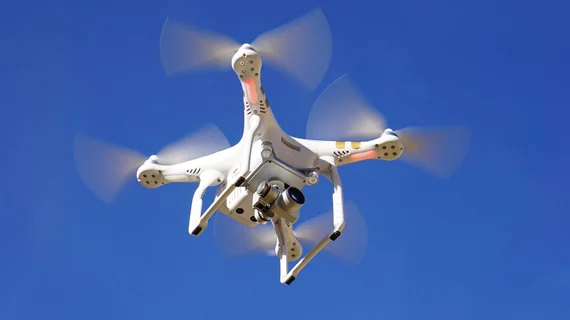Drones deliver AEDs in times of need
When out-of-hospital cardiac arrest occurs, bystanders can help save the person’s life by administering CPR or using an automated external defibrillator (AED) before emergency personnel arrive. AEDs rarely get used in these instances, however, potentially leading to unnecessary deaths from cardiac arrest.
According to new research presented in the New England Journal of Medicine, drones may be able to make big impact in this area and get AEDs in the hands of bystanders at rapid rate.
The researchers, representing the University of North Carolina at Chapel Hill and North Carolina State University, performed a randomized trial where out-of-hospital cardiac arrest was simulated with a mannequin 35 different times in 5 different locations.
In each instance, one “bystander” called 911 to initiate the drone launch and another simultaneously searched for an AED on the ground. The speed of using a drone was then compared with the speed of searching on the ground.
Overall, the drone-delivered AED was quicker than the ground search in all but one location. Drone delivery was nearly three minutes faster in one location.
“Nearly half the participants randomly assigned to conduct a ground search reported difficulty finding an AED,” the authors added. “All the participants reported that they would be willing to access an AED drone-delivery system in a true out-of-hospital cardiac arrest.”
The group’s full assessment can be read in the New England Journal of Medicine here.

